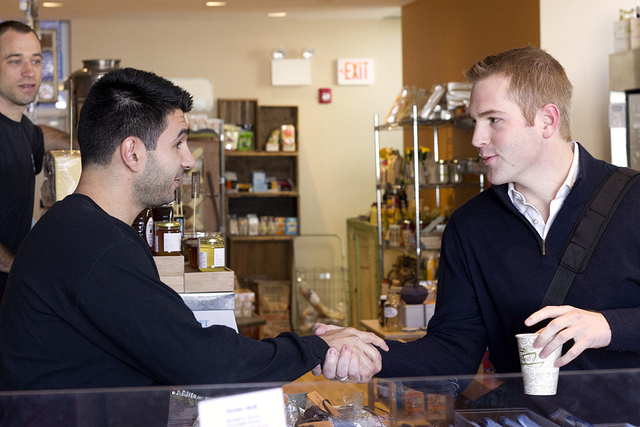How to Recover Customer Trust After Unsatisfactory Service
 [We’re pleased to welcome Kenny Basso of IMED Business School. Kenny recently published an article in Journal of Service Research, entitled “Trust Recovery Following a Double Deviation,” with co-author Cristiane Pizzutti. ]
[We’re pleased to welcome Kenny Basso of IMED Business School. Kenny recently published an article in Journal of Service Research, entitled “Trust Recovery Following a Double Deviation,” with co-author Cristiane Pizzutti. ]
The number of complaints on sites such as ripoffreport.com and consumersaffairs.com and complaint boards around the world illustrate that service failures are frequent and even inherent to service encounters. To avoid this public exposition, company can perform a service recovery. However, some times, the results of the service recovery are also negative to the client, or else, company is unable to appropriately restore service after a failure. In this situation, there is a double deviation of the client initial expectations about the service. The double deviation situation imposes a severe violation of the trust that the client has on the company. This paper focus on elucidates how a company can recover
client trust after a double deviation.
Our results demonstrate that, contrary to what some may think, money (i.e., financial compensation) does not buy trust after double deviation; instead, companies can restore the client’s trust (at least in part) and maintain the relationship with him/her by making an apology or a promise of non-recurrence of the failure. However, it is worth noting that whereas making an apology does not require many resources, making a promise requires that the internal problems that generated the initial failure be resolved; otherwise, the promise will be a deception. Furthermore, it is important for firms to match the type of double deviation to the recovery strategy. Hence, promises have more efficacy in restoring trust when the trust violation is based on a company’s competence, as, for example, slow service in an understaffed store or by unprepared employees in on-the-job training programs, a room that is not clean, a meal that is cold, or baggage that arrives damaged. On the other hand, apology has more efficacy when the client perceives the failure as resulting from a lack of integrity or improper company principles and values, such as treating the customer badly because he bought a ticket from a daily deal web site, having rules that benefit the company written in fine print to make it more difficult for consumers to read them or giving a table reserved by one client to another who arrives earlier at the restaurant to ensure its occupancy.
The abstract for the paper:
Although double deviation (i.e., unsatisfactory service recovery) is an acknowledged phenomenon in the field of marketing, little attention has been devoted to determining what actions firms can take to restore consumer trust in the wake of such an event. Across four experimental studies of different populations and service sectors, we show that double deviation intensifies the trust violation generated by the initial service failure and that recovery from double deviations requires fundamentally different strategies than recovery from single deviations. Our results suggest that financial compensation is not an especially effective strategy for double deviations compared to the effectiveness of apologies and promises that the problem will not occur in the future. However, it is important for firms to match the type of double deviation to the recovery strategy, with apologies being more effective for integrity violations and promises being more effective for competence violations.
You can read “Trust Recovery Following a Double Deviation” from Journal of Service Research free for the next two weeks by clicking here. Want to know all about the latest research from Journal of Service Research? Click here to sign up for e-alerts!
*Customer service image attributed to Didriks (CC)
Kenny Basso Professor of Marketing at the IMED Business School, Faculdade Meridional – IMED, Brazil. His research interests include services marketing, trust and consumer behavior. He has papers published in the Journal of Services Marketing, Journal of Retailing and Consumer Services, International Journal of Bank Marketing and Journal of Product & Brand Management.
Cristiane Pizzutti Professor of Marketing at the Universidade Federal do Rio Grande do Sul – UFRGS, Brazil. Her research interests include consumer behavior and services marketing. She has papers published in the Journal of Product & Brand Management, Journal of Services Marketing, Journal of Retailing and Consumer Services, International Journal of Retail & Distribution Management, and International Journal of Electronic Commerce.































































































